APETINA
Daily life in an indigenous village
Apetina in a nutshell
Apetina is a small Wayana village in the Sipaliwini district, in the south of Suriname. It is the largest of the three Wayana villages in Suriname. About 500 people live there. Besides, there are communities in Kawemhakan and Palumeu, but most Wayana live in Brazil, where they originally come from. People largely live in traditional ways of hunting and fishing and planting (bitter) casava. The modern world is an hour away by plane or several days by boat. There is a school, a medical aid station, and several more also mobile telephony and internet for years. The Tapanahony is the artery of the village. Also there has been telephone and internet for several years, and all young people use Facebook and Instagram. The kids love water. Before school, after school and during breaks, they can be found in the sula, the large one rapids in the Tapanahony and also the lifeline of the village. It’s the most beautiful thing outdoor swimming pool in Suriname. This slideshow gives you a small taste of what daily life in Apetina is like. When you scroll down Aiwen and Carlos will tell you about what a normal day looks like in Apetina.
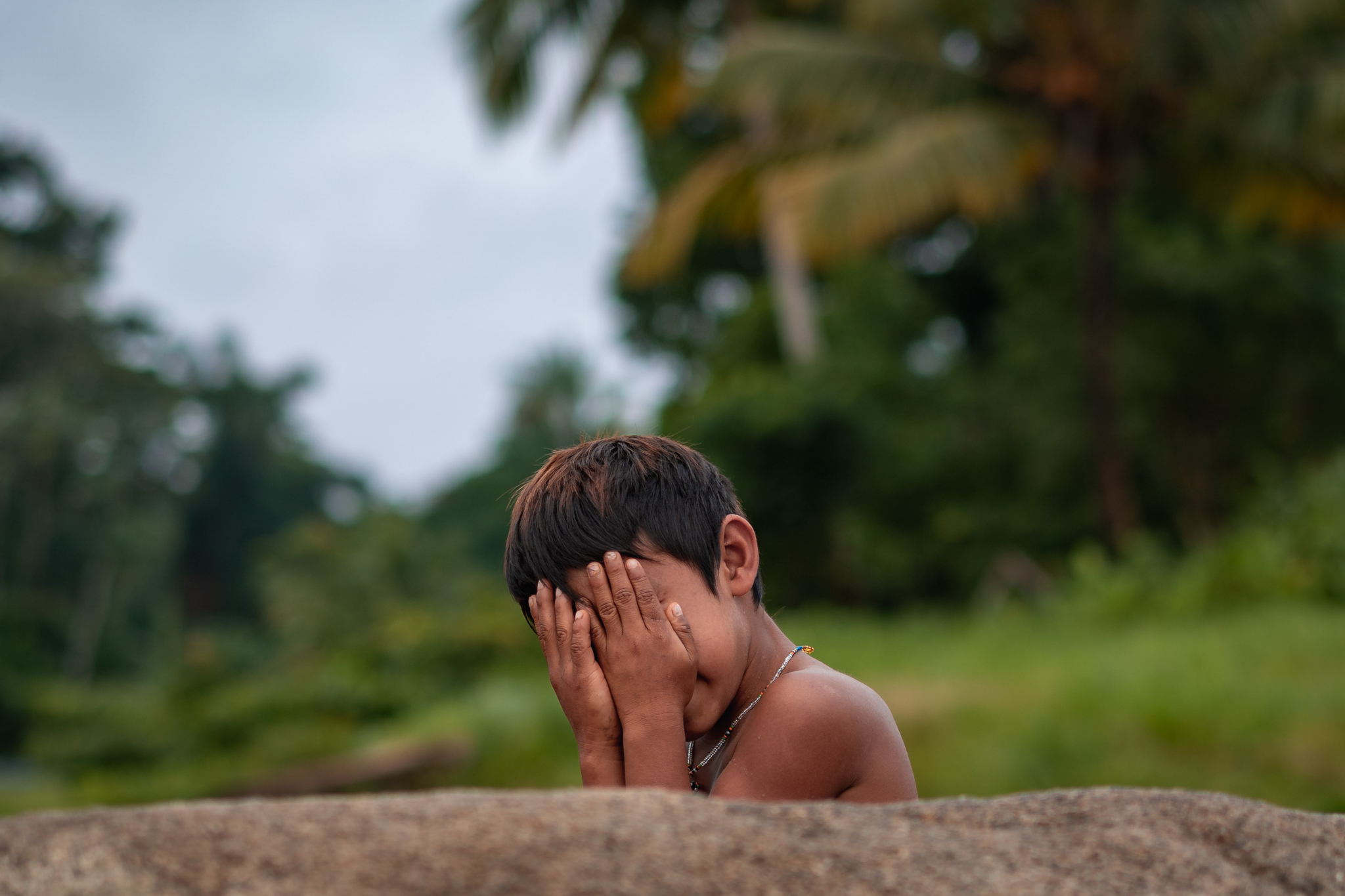
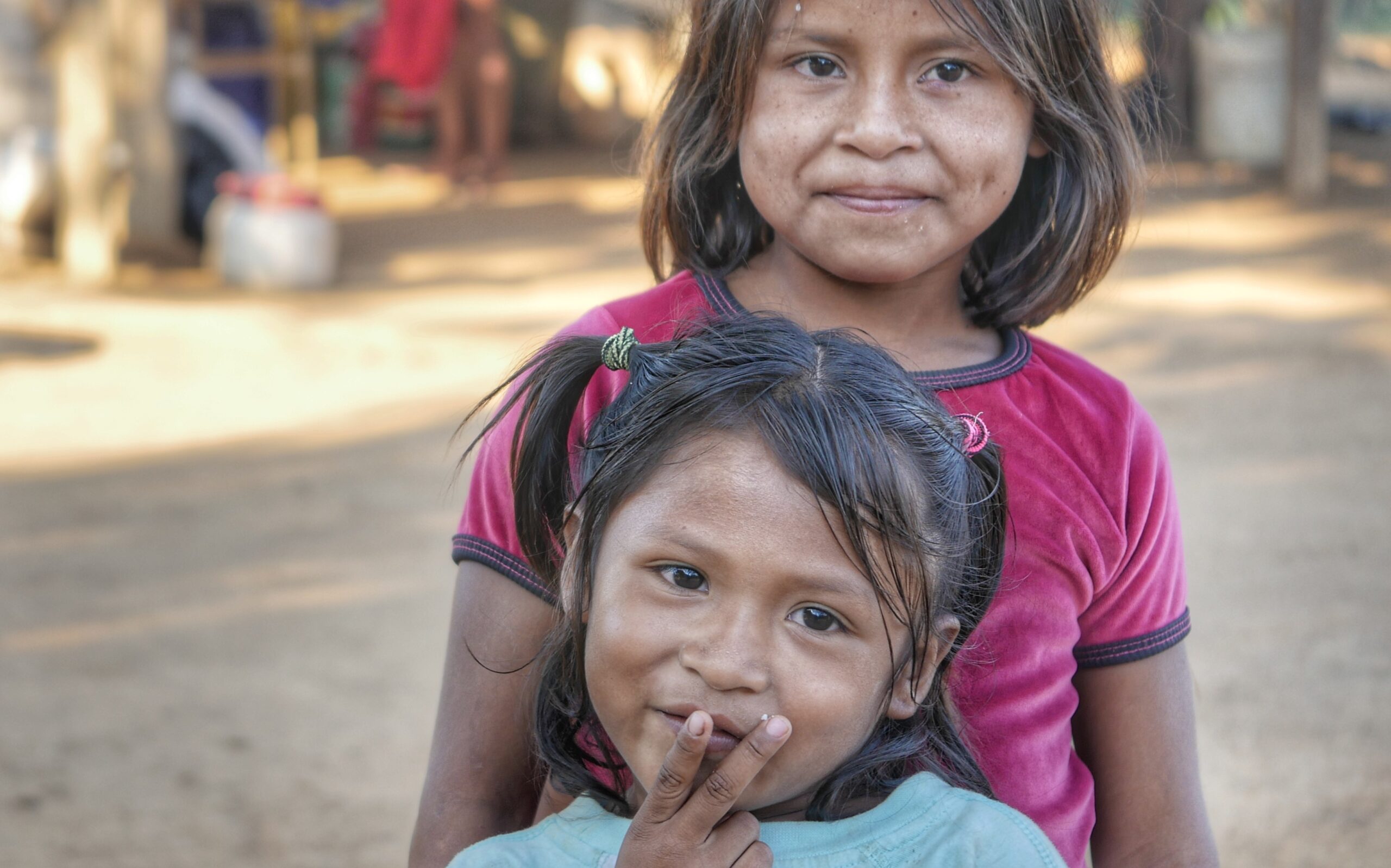
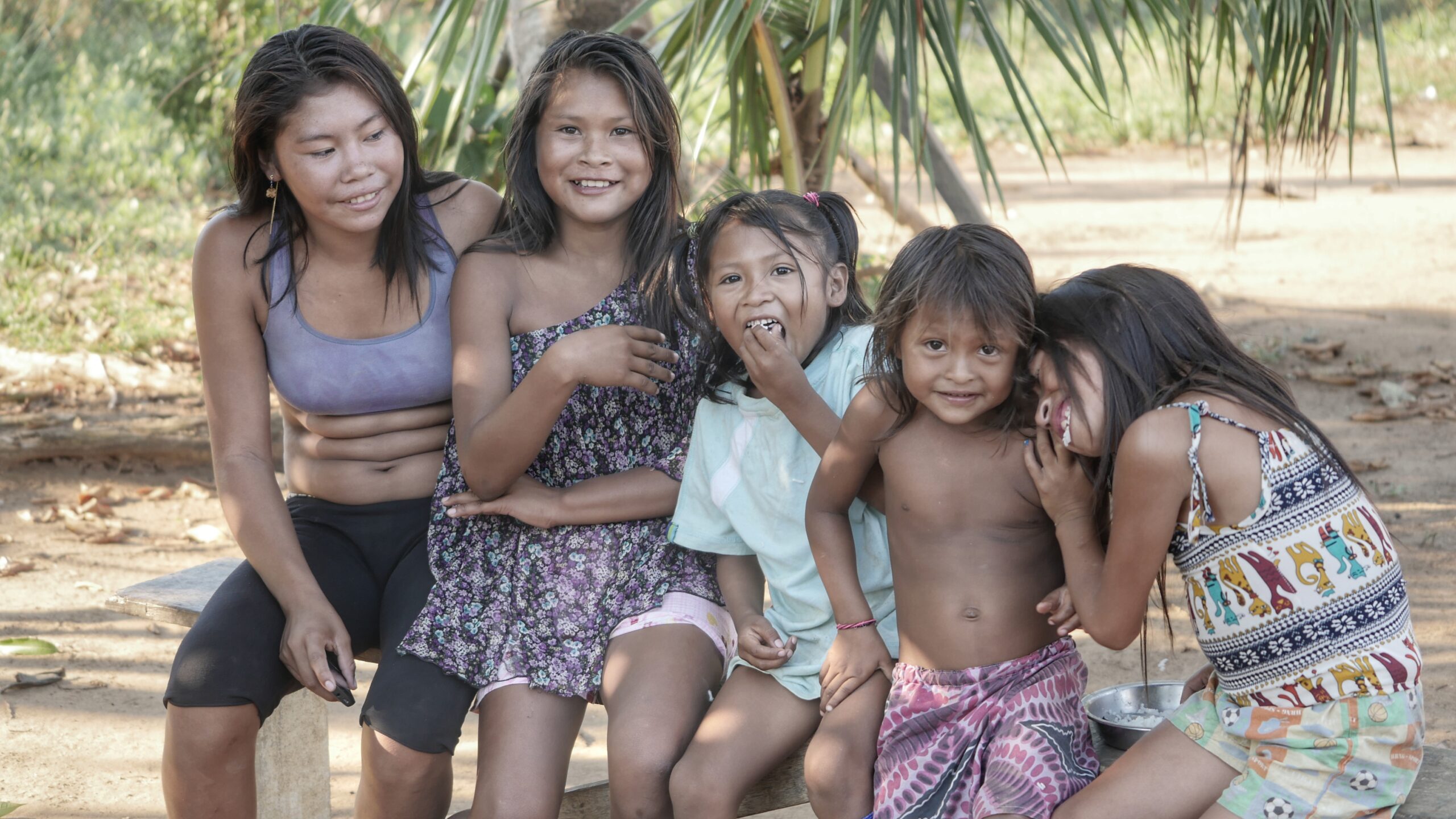
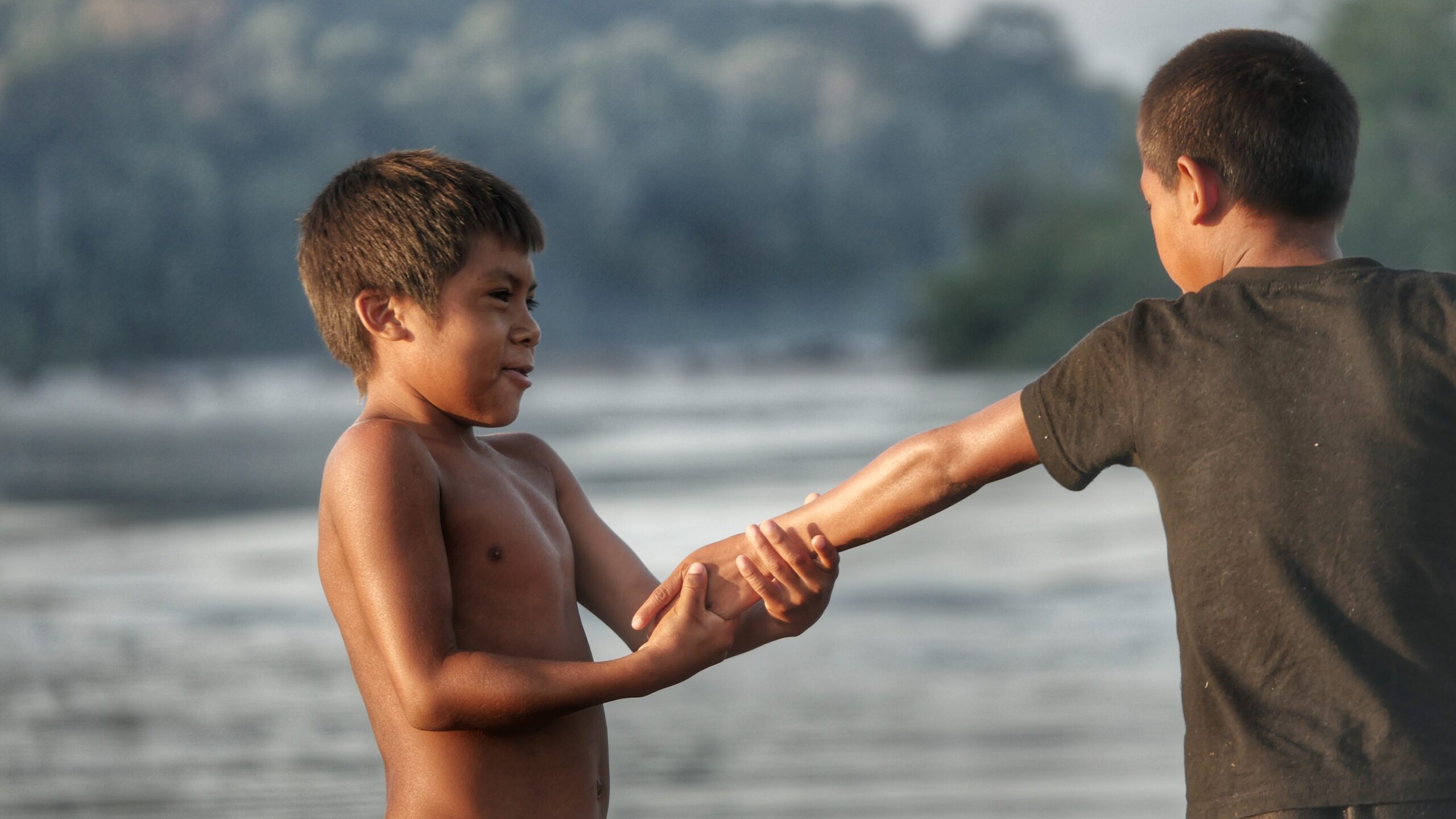
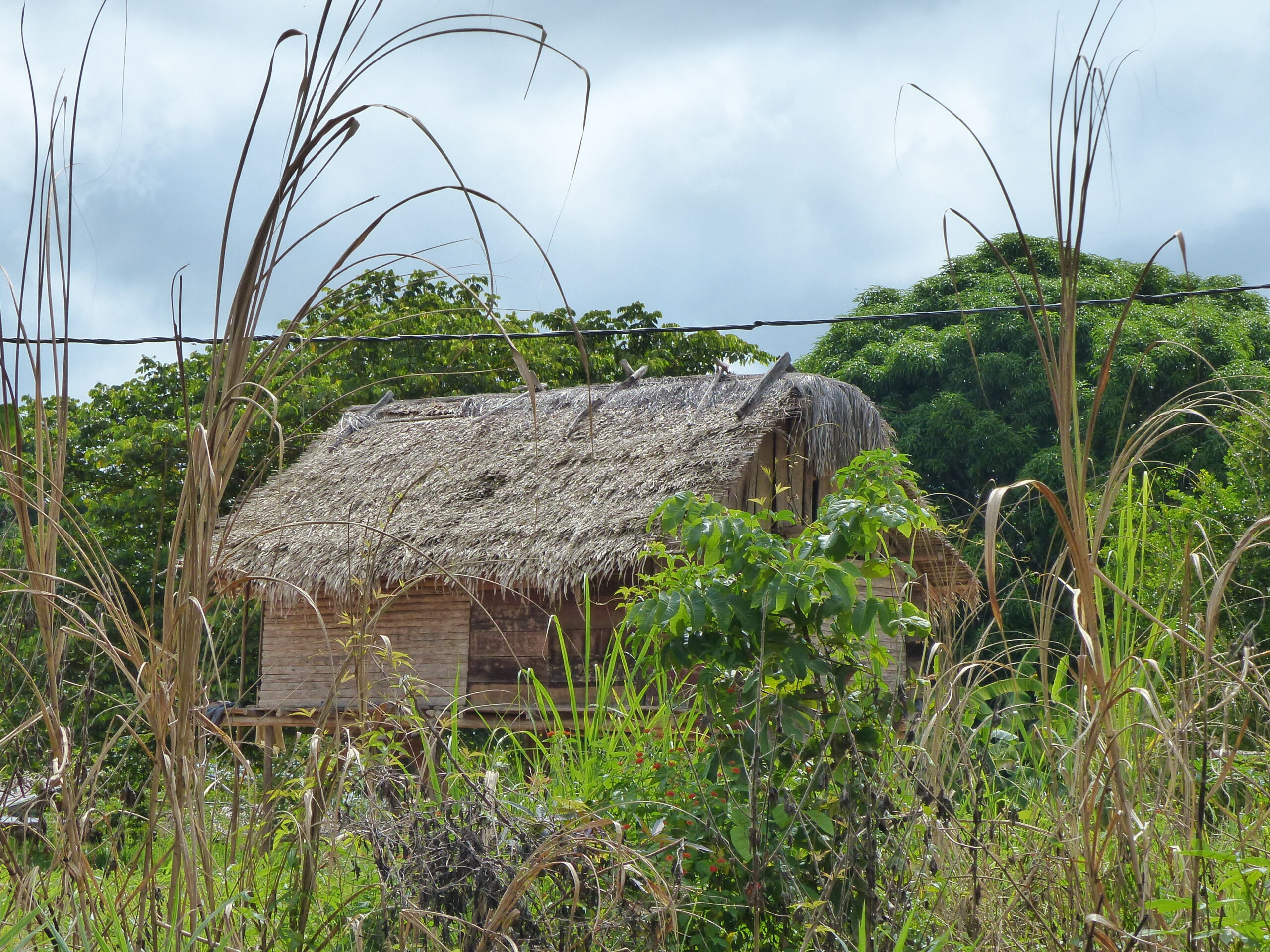
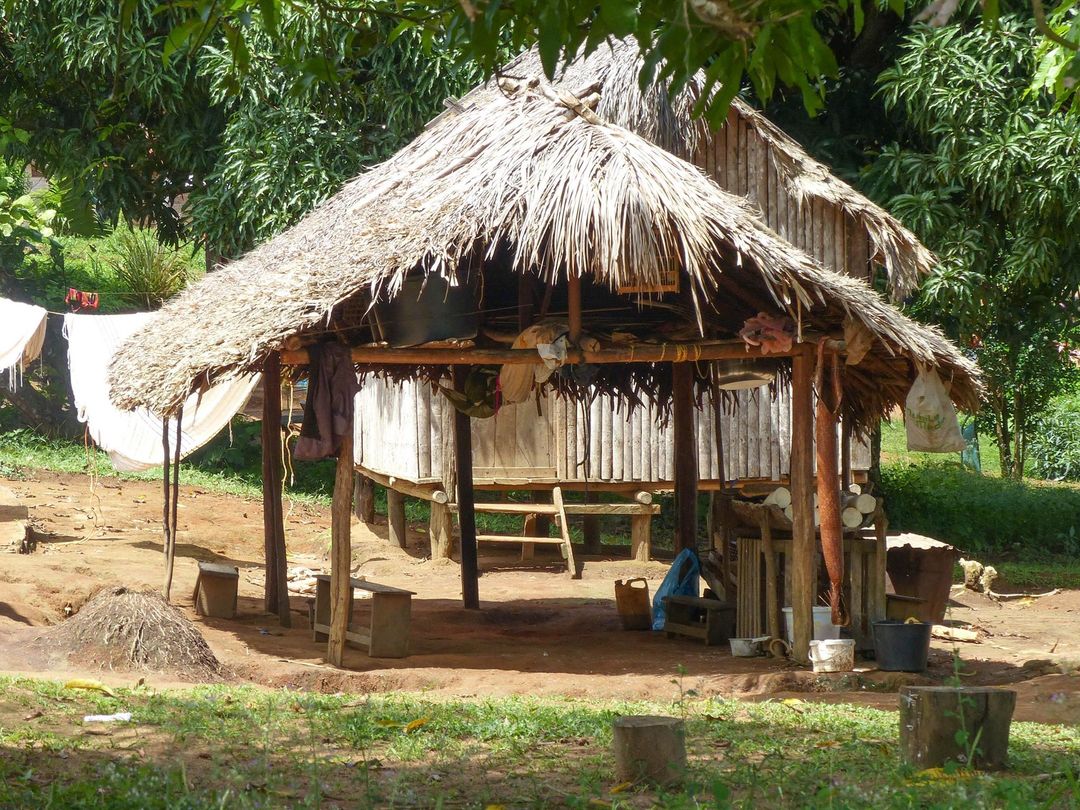
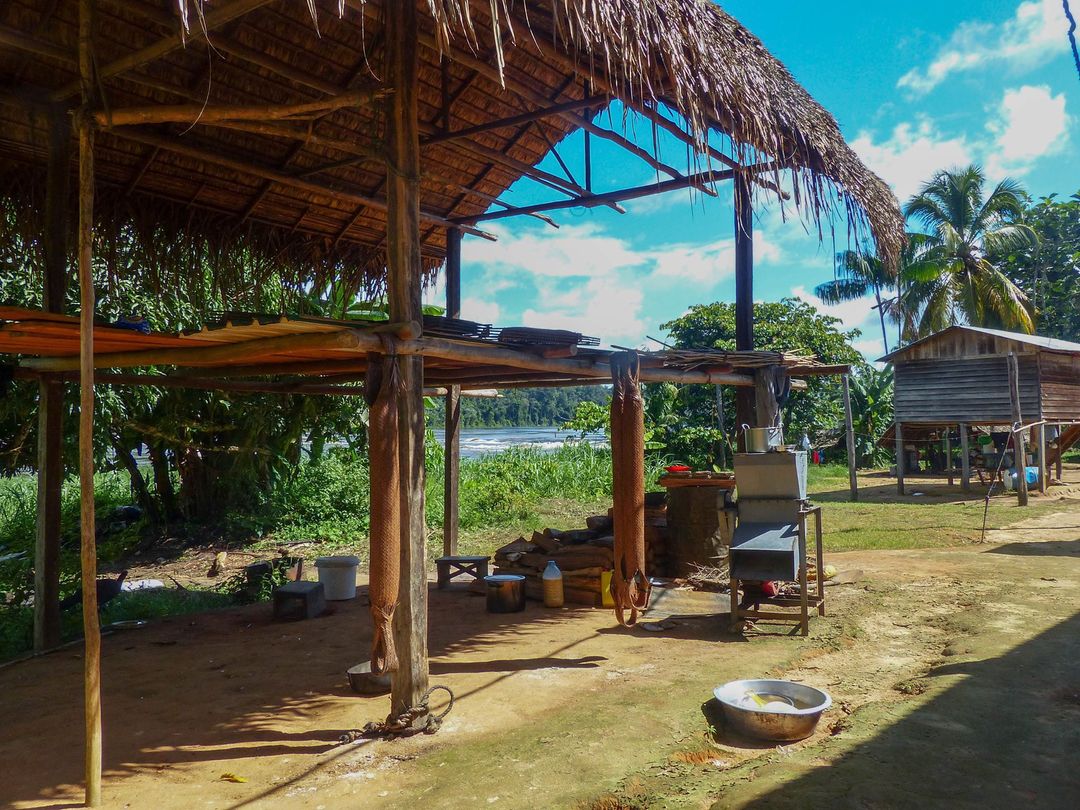
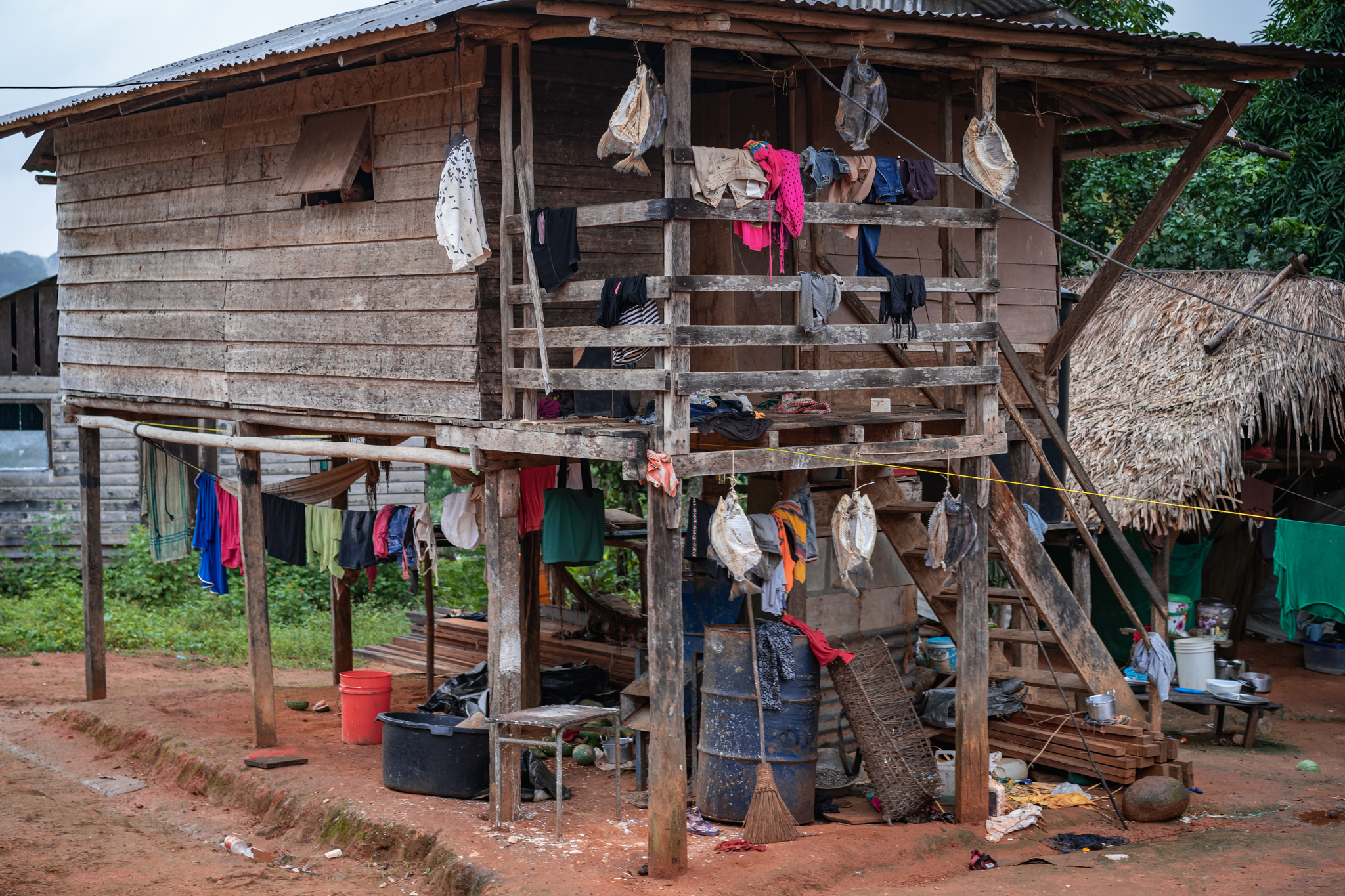
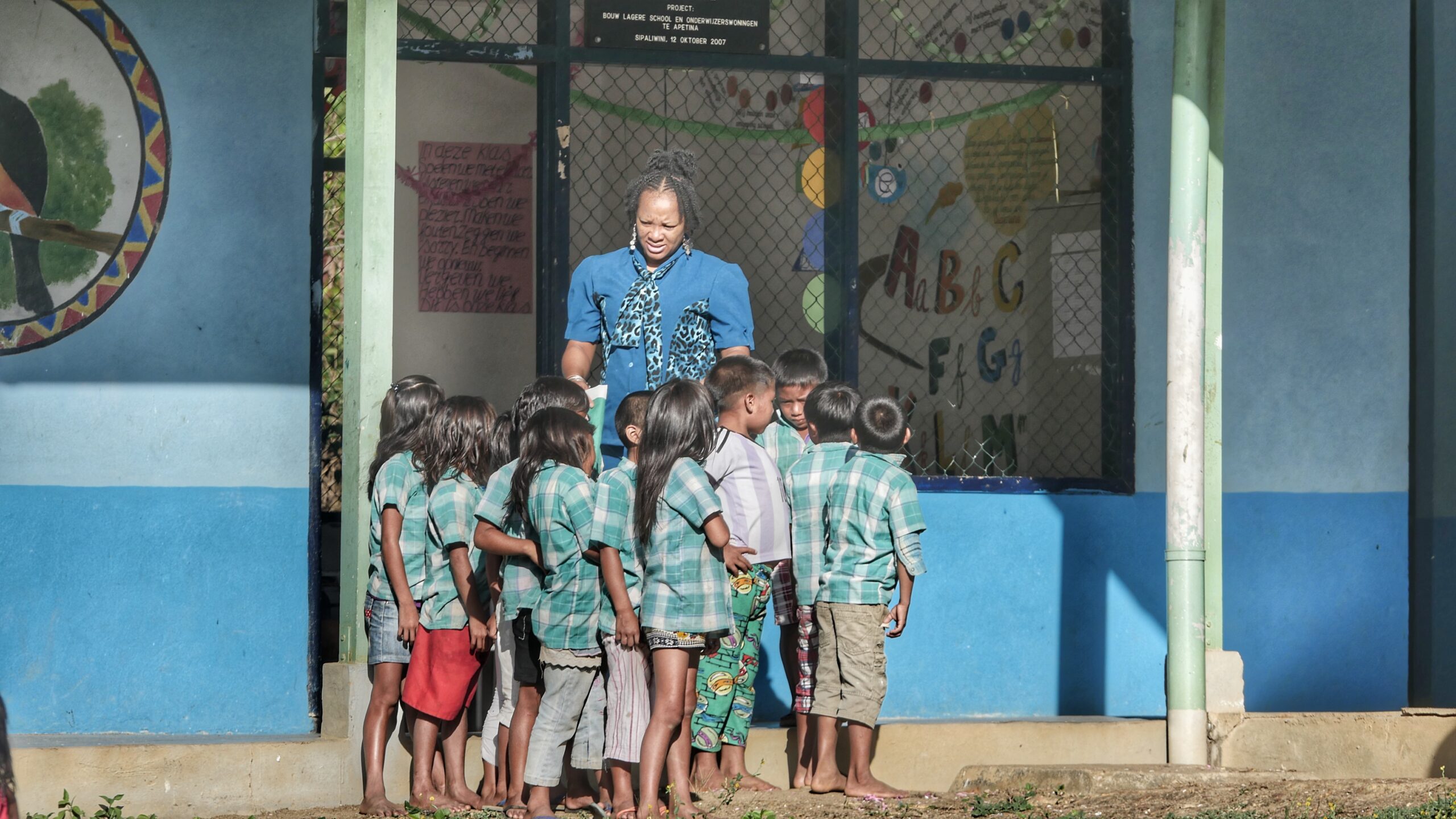
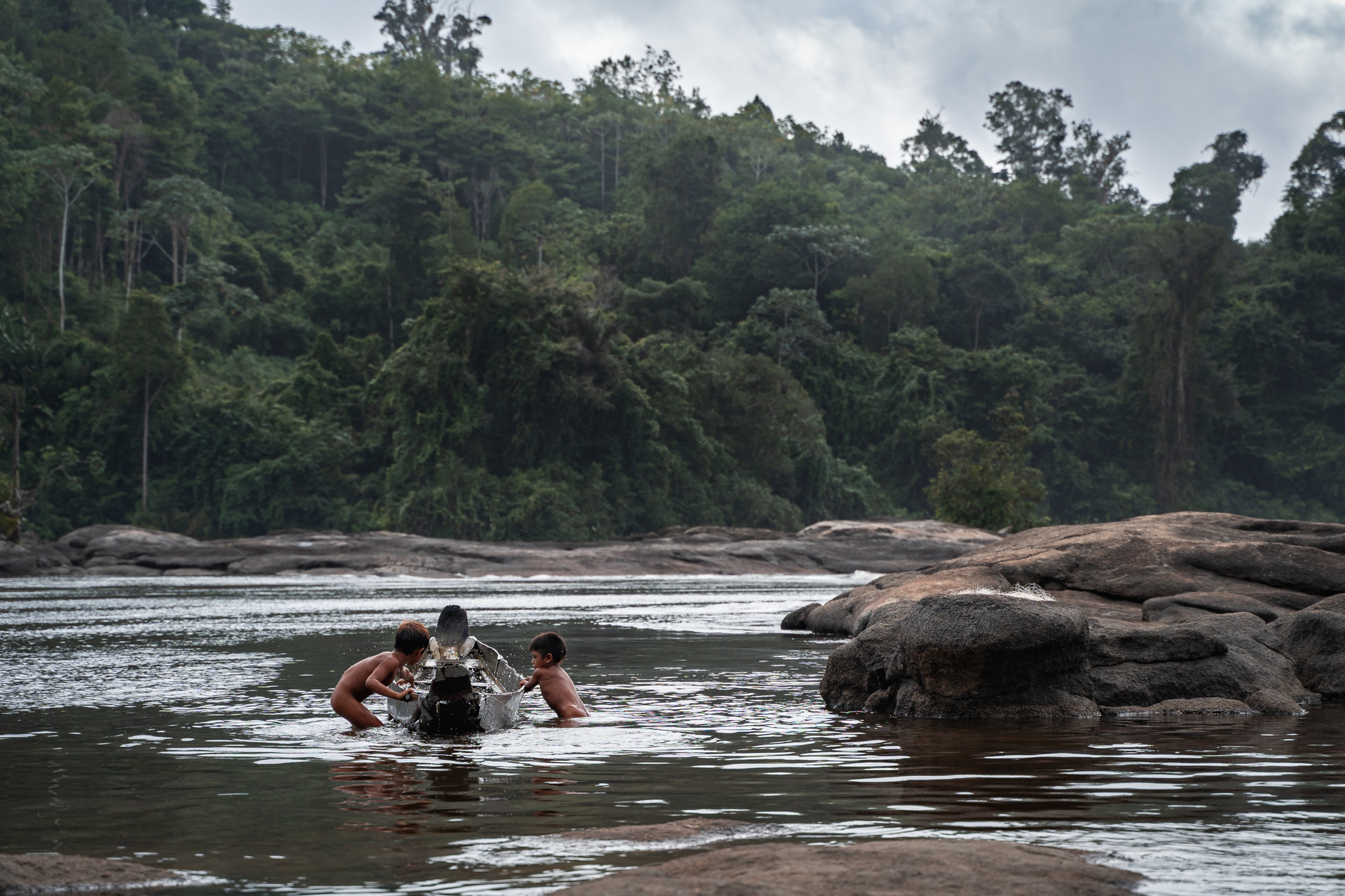
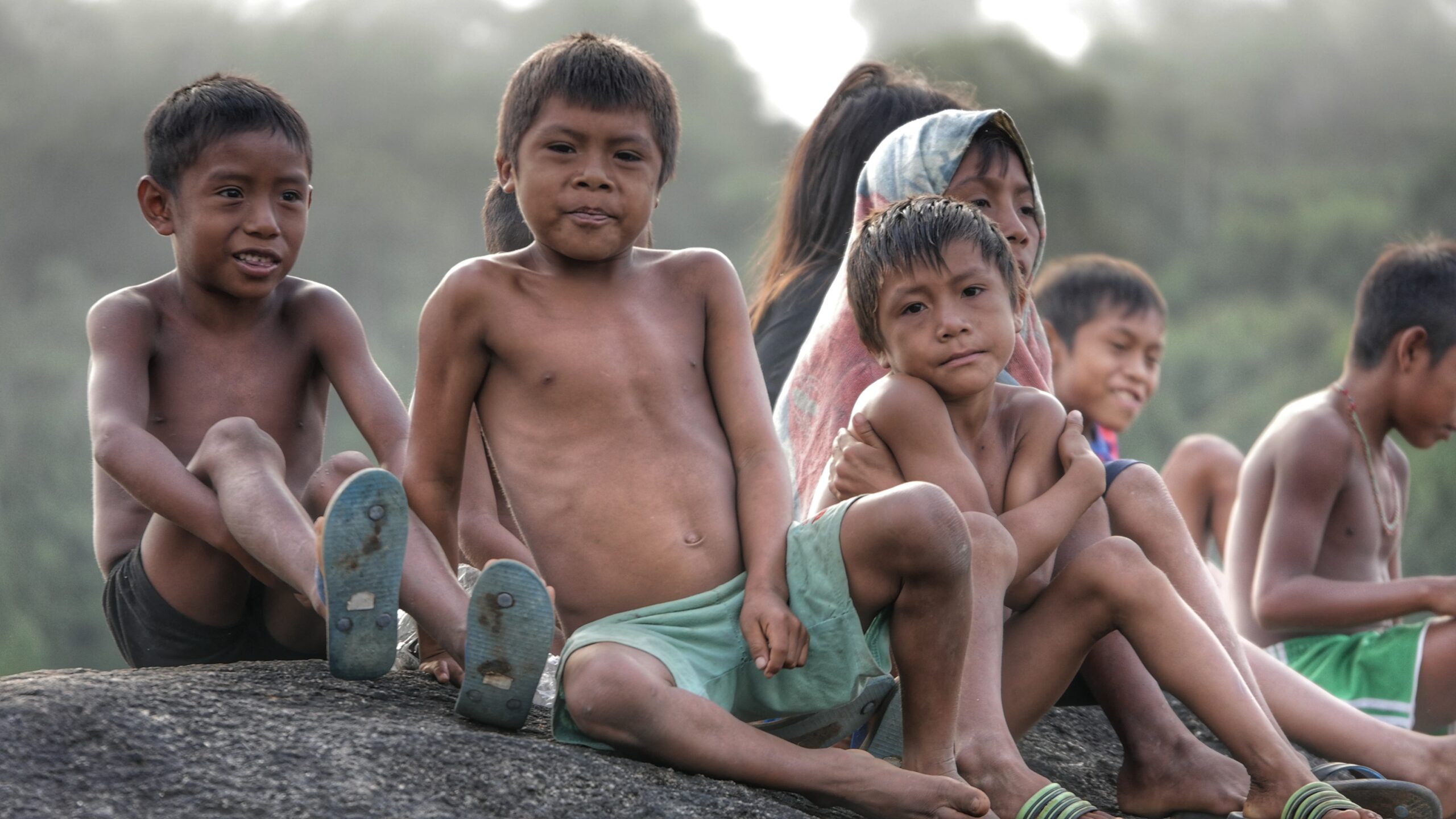
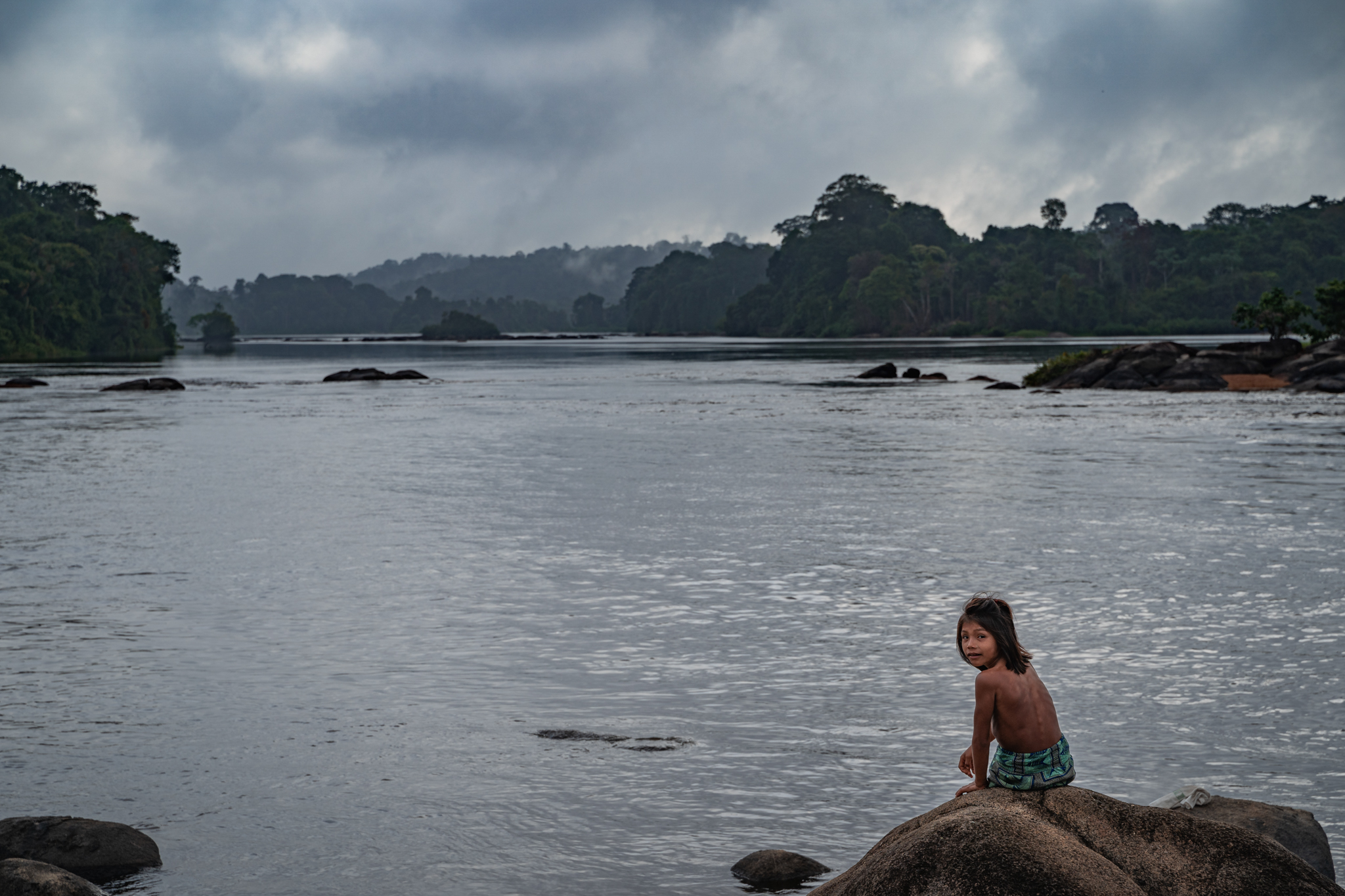
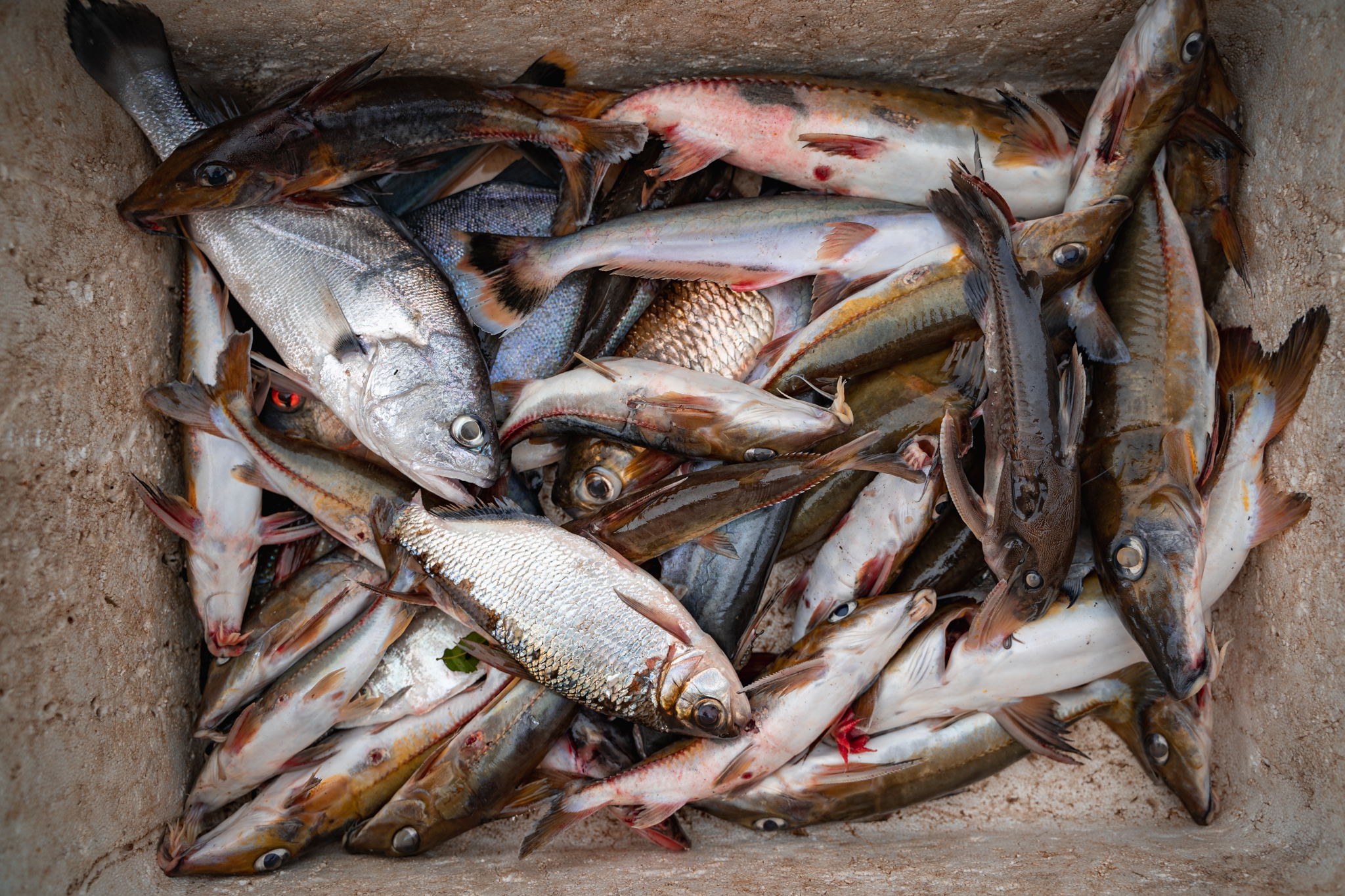
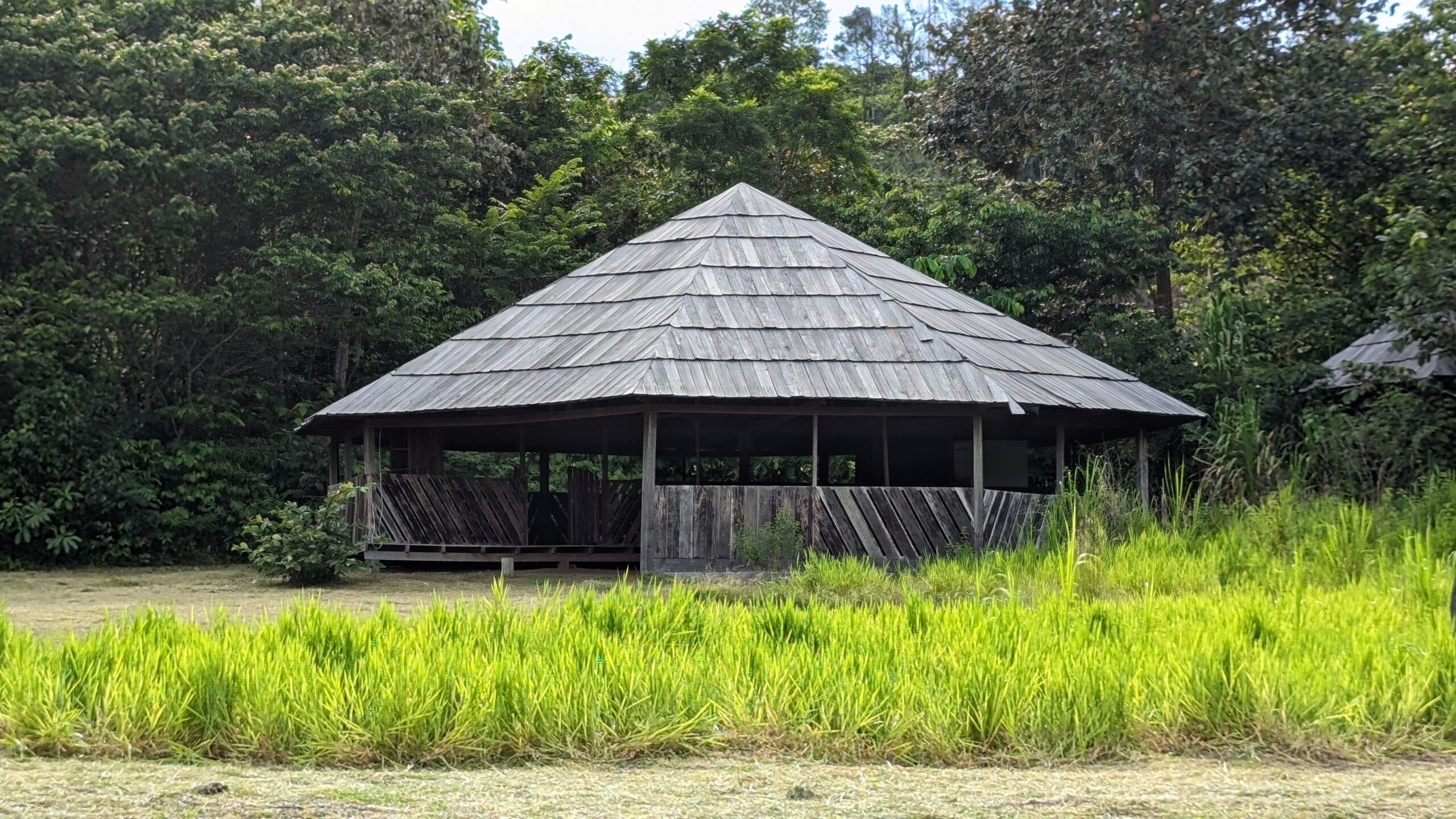
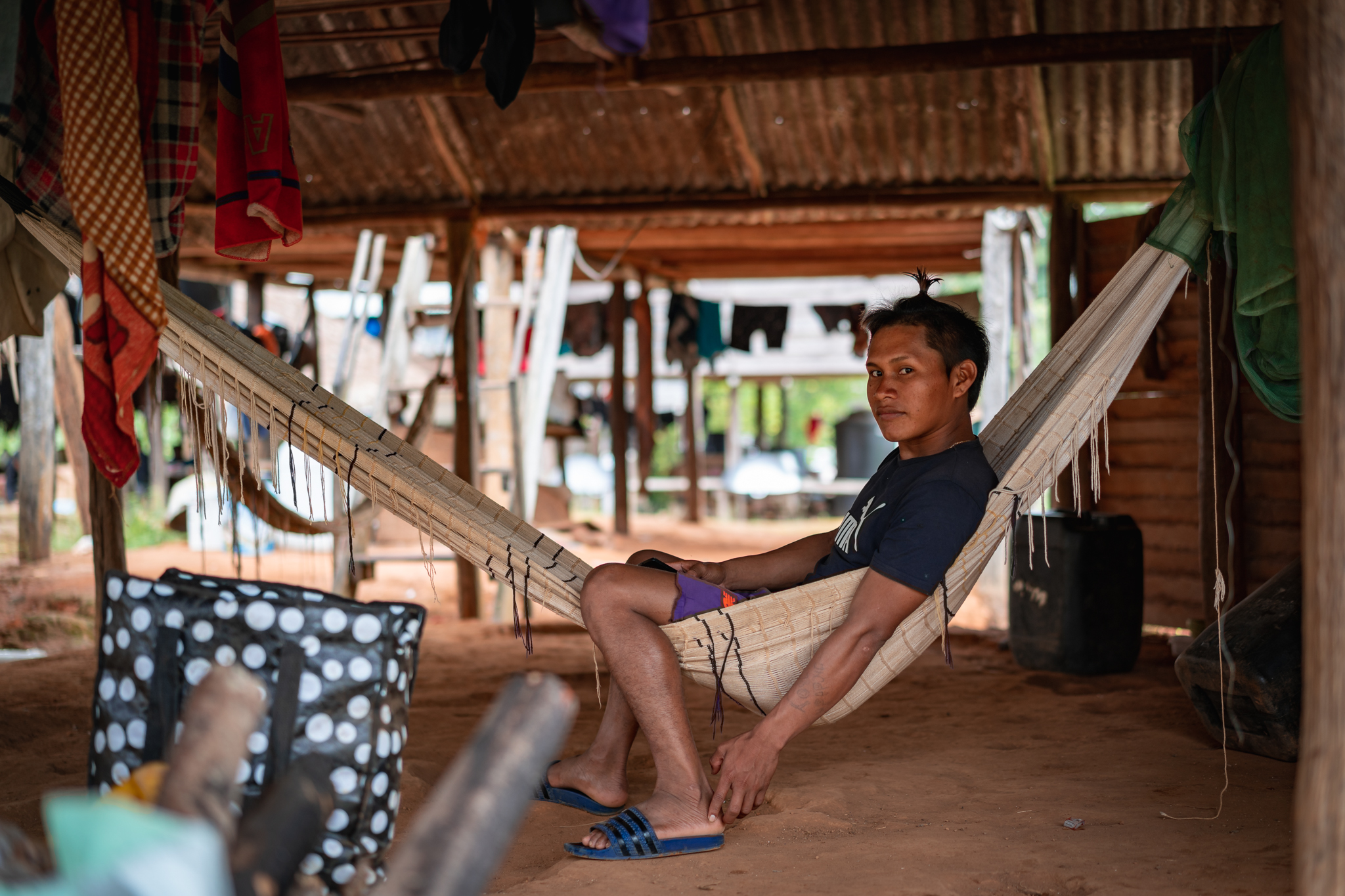
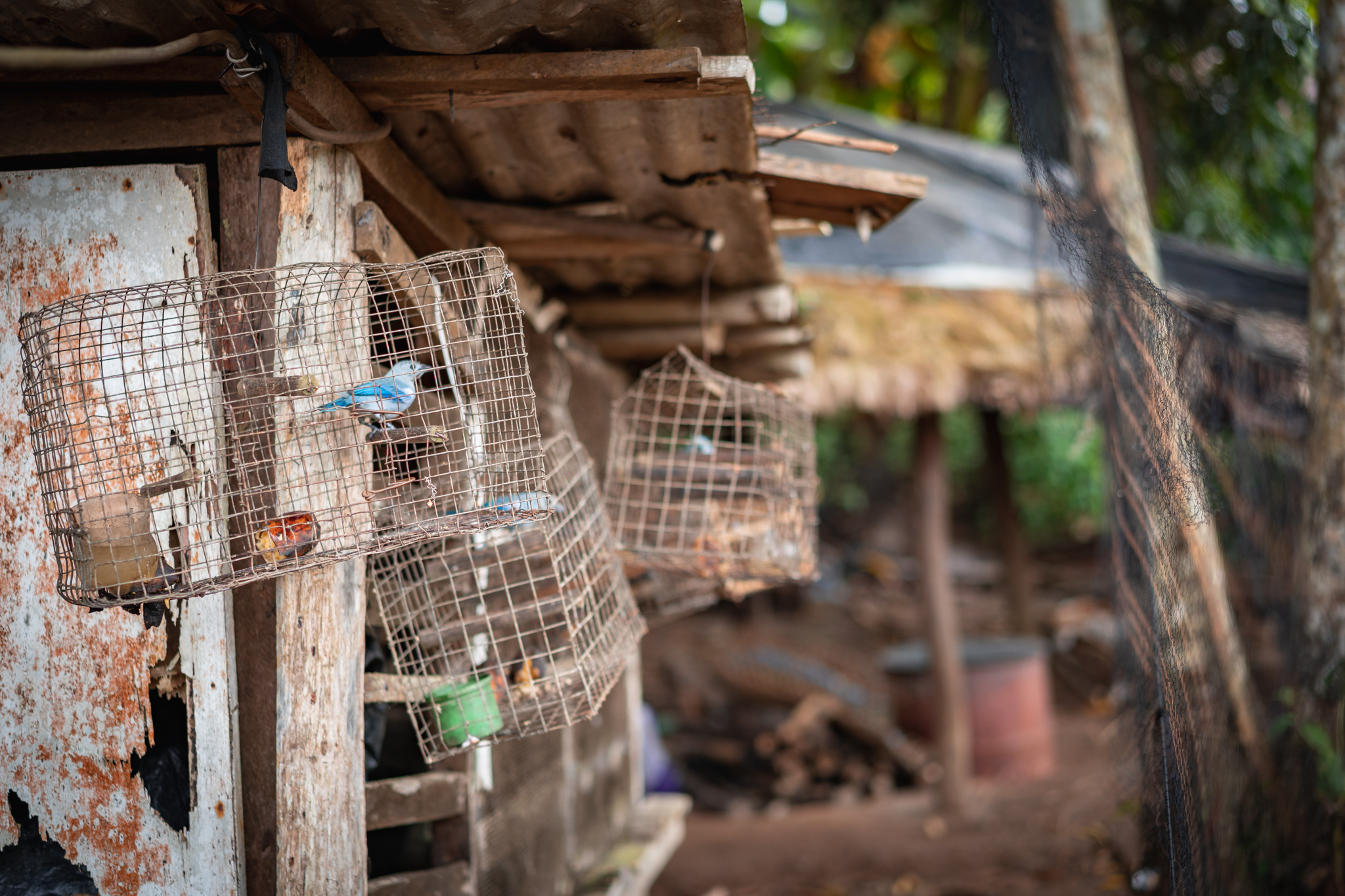
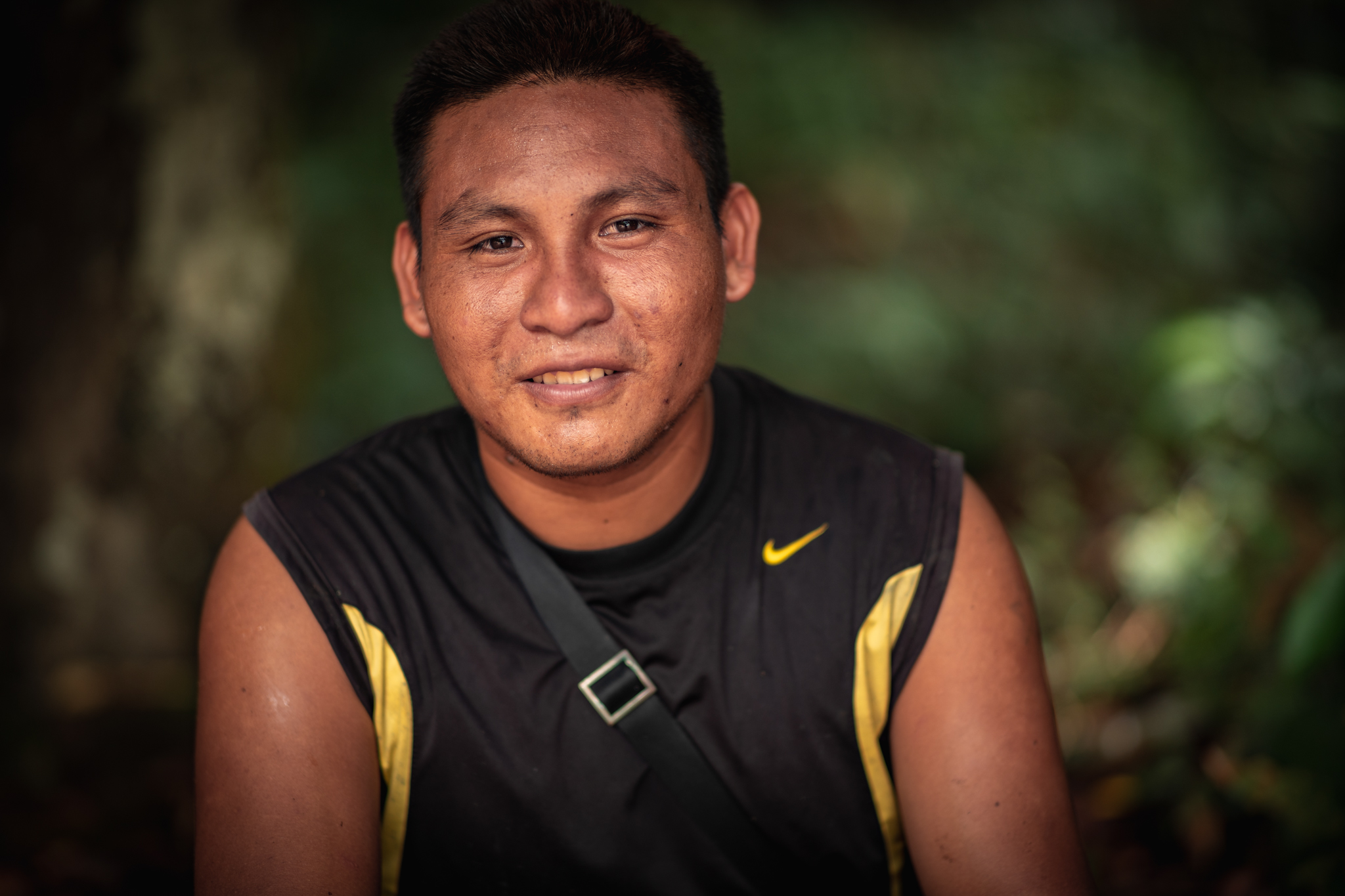
Daily life in Apetina
Aiwen and Carlos say:
The day starts really early for us. We are wide awake around 5 in the morning. The children will sleep through the night. The family lives close to each other and therefore you hear and see that others are also awake. Our mother or grandmother makes a fire in the kitchen to make tea or coffee or to serve kasiri. One after another flows into the kitchen to enjoy the warm fire, a pot of kasiri, a pot of tea or coffee. Ëwetomam tëu ka (good morning, did you get up well?) so the conversations of the day start so pleasantly together and the activities that will be done during the day are discussed. One goes hunting with a group, the other goes fishing, the other goes to the agricultural land with his family to harvest. After the harvest, the women make arrangements to help each other peel and grate the cassava for baking for cassava bread or to make kasiri. Kasiri is our delicious traditional drink. It is sweet at first, but as it ferments the alcohol content in it increases. This is especially popular at parties.
Our household consists of a house in which we sleep in hammocks and mosquito nets. Furthermore, a kitchen where we eat together around the table. There are benches around the table where we sit. We also have a kitchen where the food is prepared, containing all the necessities such as the cassava grater, the cassava carriers, the cassava press (matapi) and much more. Adult children and their families often live very close to their parents. We do this to optimally support each other and, especially, to care for the elderly who need help.
The sun rises after six in the morning. After the day’s discussion we go to the river. The village is along the river with a bank of rocks. There we meet others sitting on the rocks. We also sit and chat with them for a while and then bathe in the river. Those who had set their nets in the river the afternoon before will collect the nets. When they return, many are curious about what the catch was like. The bigger the catch the better, because we like fish every day. Often, for a better catch, we have to sail much further to set our nets.
After bathing and cleaning we go back home for breakfast. What we eat? Very often fish such as anjoemara, hoke, pëne, huluwi etc. are cooked in a spicy soup. We eat that with cassava bread. We dip it in the tuma (fish soup), take a piece of fish and eat it nicely. Hmmmm….delicious. I immediately get hungry. Sometimes we eat meat with it, but that is more for lunch. After dinner, the children go to the Kananoe Apetina school and the parents go about their planned daily activities. If there are guests, we will guide the guests for the days they are there. We enjoy showing people our village and surroundings. We cook delicious food for them, take them to our agricultural grounds to see the mountains and the sulas (rapids) in the area. Most guests who stay with us love nature and enjoy the peace and quiet.
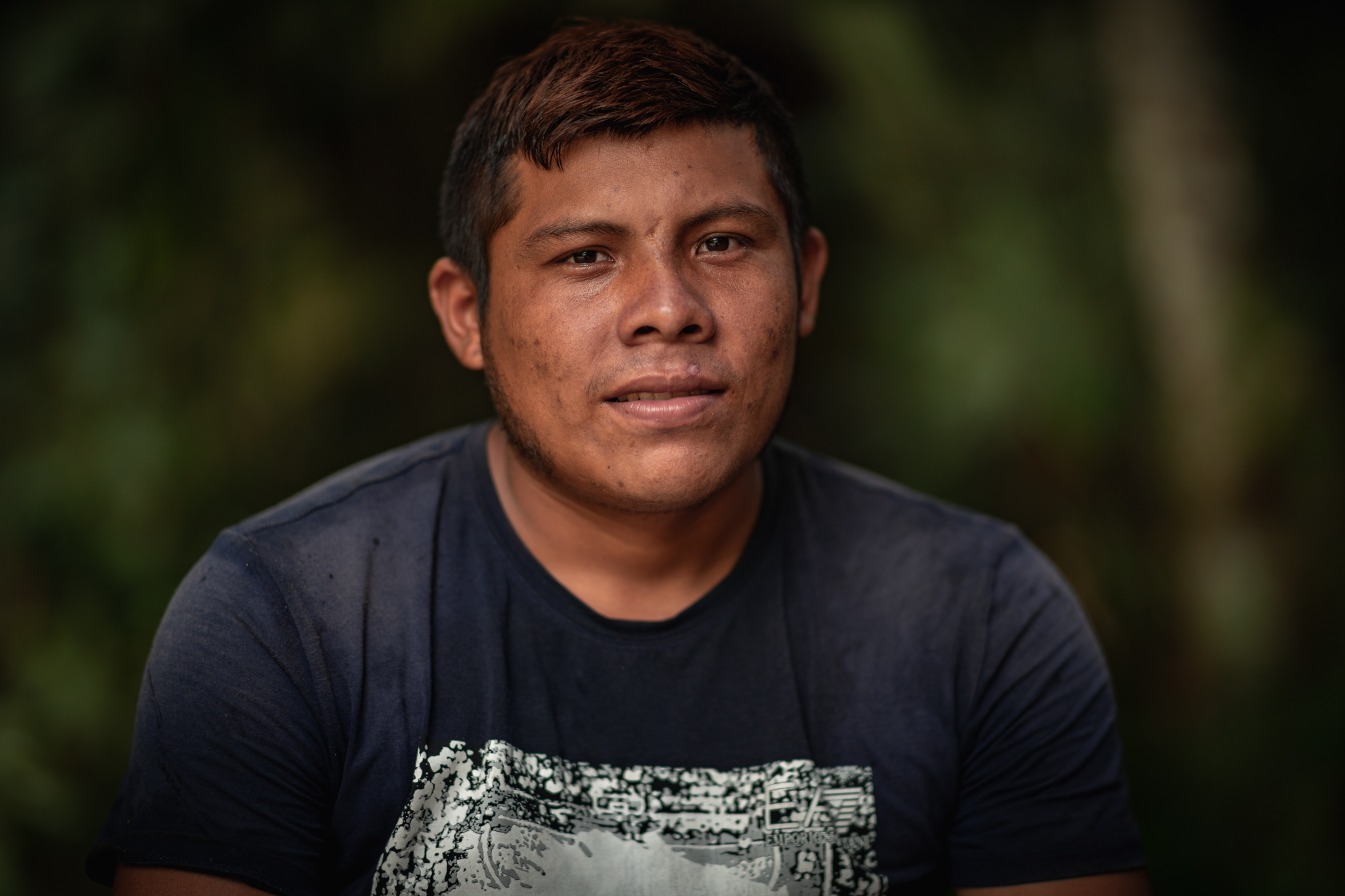
Het dagelijks leven in Apetina
Aiwen en Carlos vertellen:
De dag start bij ons echt heel vroeg. Rond 5 uur ‘s morgens zijn wij al klaar wakker. De kinderen slapen wel nog even door. De familie woont dicht bij elkaar en daardoor hoor je en zie je dat anderen ook wakker zijn. Onze moeder of oma maakt vuur in de keuken om thee of koffie te maken of de kasiri is die klaar te zetten. De een na de andere stroomt de keuken binnen om te genieten van het warme vuur, een potje kasiri, een kan thee of koffie. Ëwetomam tëu ka ( goedemorgen, goed opgestaan?) zo starten de gesprekken van de dag zo gezellig bij elkaar en worden de activiteiten die gedaan zullen worden gedurende de dag besproken. De ene gaat met een groep op jacht, de andere gaat vissen, de andere gaat met diens gezin naar de kostgrond om te oogsten. De vrouwen maken afspraken om na de oogst elkaar te helpen de cassava te schillen en te raspen voor het bakken voor cassavebrood of om kasiri te maken. Kasiri is onze lekkere traditionele drank. Het is in het begin zoet, maar naarmate het fermenteert stijgt het alcoholgehalte erin. Dat wordt vooral op feestjes graag gedronken.
Onze huishouding bestaat uit een huis waarin wij slapen in hangmatten en klamboe (muskietennet). Verder een keuken waar wij gezamenlijk eten rond de tafel. Om de tafel zijn er bankjes waarop wij zitten. Wij hebben ook een keuken waar het eten bereid wordt met daarin alle benodigdheden zoals de cassava rasper, de cassavedragers, de cassavepers (matapi) en nog veel meer. Volwassen kinderen wonen met hun gezinnen vaak heel dicht bij de ouders. Dat doen wij om elkaar optimaal te ondersteunen en vooral voor de ouderen te zorgen die hulp nodig hebben.
Na zes uur ‘s ochtends komt de zon op. Na de dagbespreking gaan wij naar de rivier. Het dorp is langs de rivier met een oever van rotsen. Daar ontmoeten wij anderen die op de rotsen zitten. Ook met hen gaan wij even zitten babbelen om daarna in de rivier te baden. Degenen die een middag tevoren hun netten in de rivier hadden uitgezet gaan de netten ophalen. Als die terugkeren zijn velen benieuwd hoe de vangst was. Hoe groter de vangst hoe beter, want wij lusten wel elke dag vis. Vaak moeten wij, voor een betere vangst, veel verder varen om onze netten uit te zetten.
Na het baden en poetsen gaan wij terug naar huis om te ontbijten. Wat wij eten ? Heel vaak vis zoals anjoemara, hoke, pëne, huluwi enzovoort, gekookt in een pittige soep. Dat eten wij met cassavebrood. Dat dopen wij in de tuma (vissoep), nemen een stukje vis en eten dat lekker op. Hmmmm….heerlijk. Ik krijg meteen honger. Soms eten wij er vlees bij, maar dat is meer voor het middageten. Na het eten gaan de kinderen naar de Kananoe Apetinaschool en gaan de ouders hun geplande dagelijkse bezigheden doen. Als er gasten zijn, begeleiden wij de gasten voor de dagen dat ze er zijn. Wij vinden het leuk om mensen ons dorp en omgeving te laten zien. We koken lekker voor ze, brengen hun naar onze kostgronden om te zien, naar de bergen en de sula’s (stroomversnellingen) in de buurt. De meeste gasten die bij ons komen houden van de natuur en genieten van de rust.
